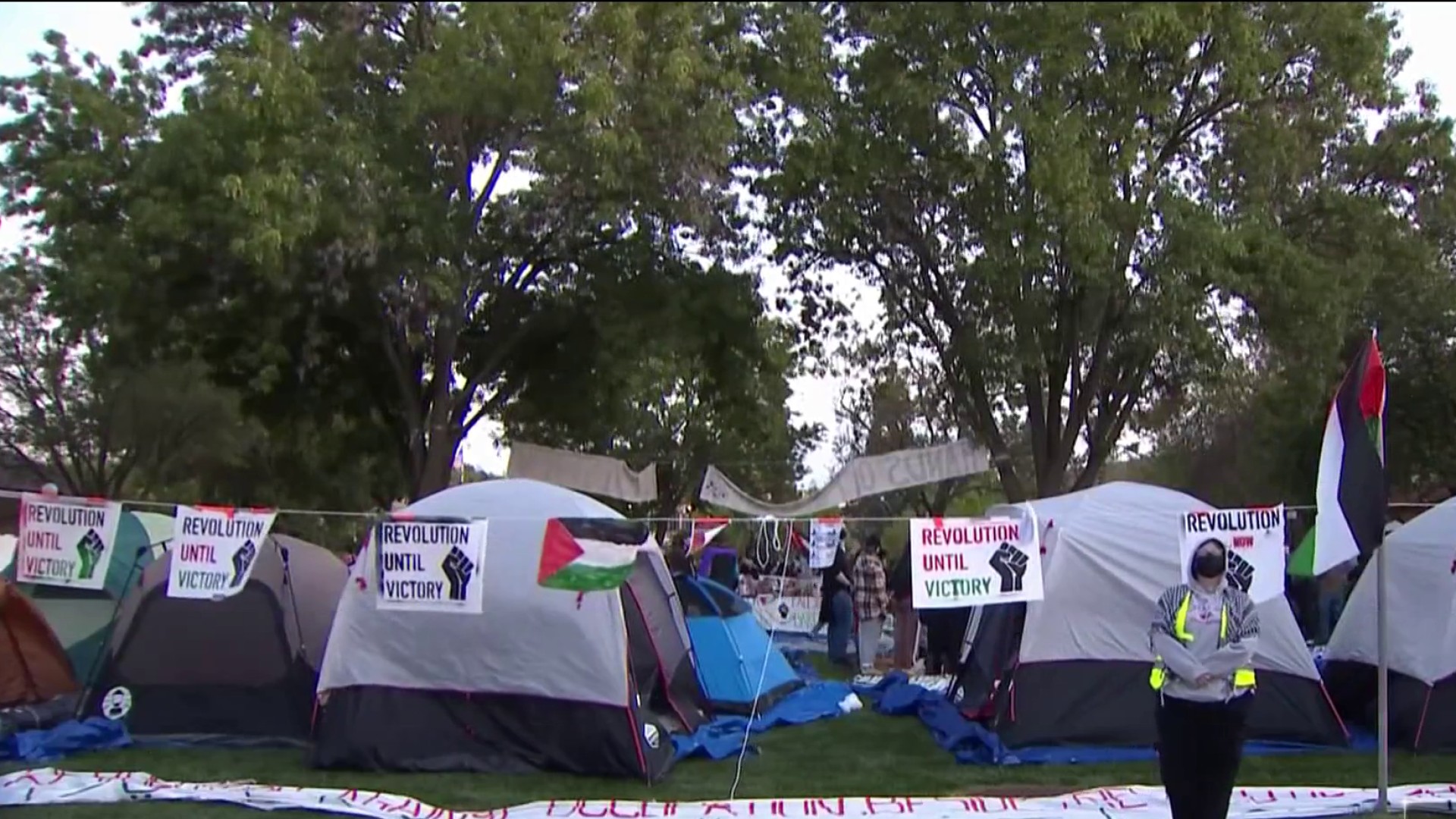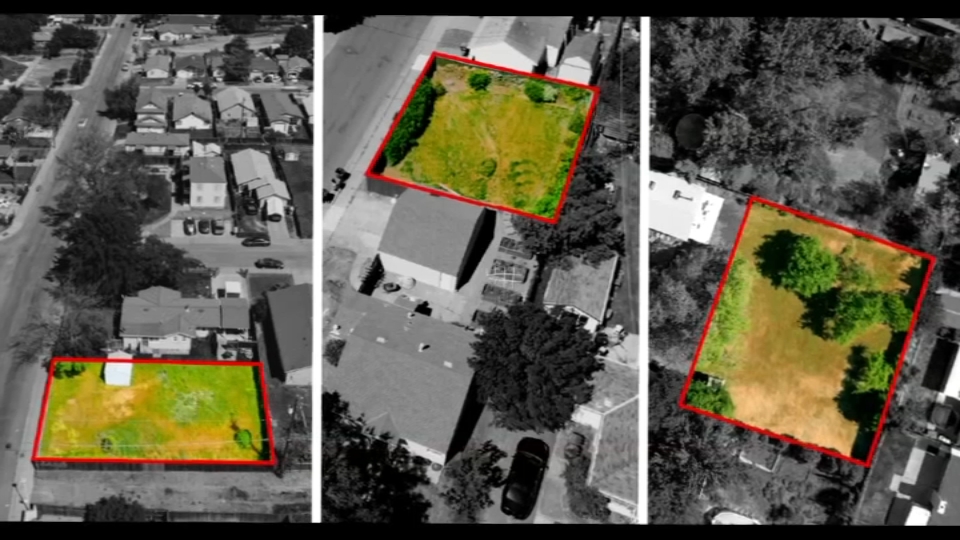San Francisco’s notorious, self-described “sun of the underworld” goes by many names: Kwok Cheung Chow, Raymond Chow, Ha Jai or "Shrimp Boy.”
A former gangster and leader of the Chee Kung Tong Free Masons in San Francisco, Chow was among 26 people charged in a federal criminal complaint alleging firearms trafficking, money laundering, murder-for-hire and drug distribution. State Sen. Yeland Lee, a Democratic candidate for Secretary of State, was also arrested on Wednesday.
Chow’s arrest during a FBI raid has drawn attention to the gangs that operate out of San Francisco’s Chinatown.
Moments after Chow’s arrest, his Facebook and Twitter accounts came under intense scrutiny by the media, with some saying that the case of the senator and former street gang leader resembles a real-life version of the “The Wire,” “American Hustle” and “House of Cards” all rolled into one.
A History Channel documentary about Chinatown gang wars has resurfaced, in which Chow opens up about his childhood, his violent past and his path to reform.
“I run this city. Who can tell me something I cannot do? Nobody,” Chow says, matter-of-factly, in the opening scene, admitting that at one point he controlled the majority of Chinatown’s gangs.
“The world is under my feet. I have my own security. I have everything,” he says. “You make so much money you don’t even want to count it. I’m not thinking I’m God, but in this city, I’m the man that calls the shots.”
Born in Hong Kong in 1960, Chow joined his first gang when he was only 9.
Local
“I just want to be the best gangster, be the best fighter, and party, making money, and also selling a lot of drugs, even back then in Hong Kong.” he says.
As for how someone so powerful came to be known as “Shrimp Boy,” the documentary reveals that Chow’s grandmother gave him the name because of his small stature (Chow is 5’5” tall).
The documentary gives an insight into Chow’s life after he moved to San Francisco with his family in 1976. He talks frankly about shooting a classmate at Galileo High School “in the a**,” and his subsequent departure from school, leaning toward practicing martial arts instead.
He eventually joined the Hop Sing Tong gang, rising quickly within the ranks, and eventually doing jail time at San Quentin.
“I did time with a bunch of amazing people (he called Charles Manson a ‘good friend’),” he says. “Each person you talk to, you learn something from them. Ain’t no stupid people inside a prison. You can say that.”
After being released from San Quentin, Chow started working for the Hong-Kong-based Wo Hop To triad, a Chinese underground society linked to organized crime.
He admits in the documentary that he ran prostitution rings, smuggled drugs and extorted money from business owners in the 1980s.
At the end of the video, he says: “I just want to be the normal people, just be accepted by my community. Not to be alone like inside a prison."
Those who know Chow described him as “gregarious” and “charismatic,” something that comes across easily in his many Facebook and Twitter pictures online.
Nathaniel Halverson, a reporter for UC Berkeley’s Investigative Reporting program, has been following Chow since last year for a PBS Frontline documentary on U.S. casinos in Macau which is due to be released this spring.
Halverson told NBC Bay Area he tracked Chow down to his doorstep last year because he wanted to interview him about triads, money laundering and the underworld. “Raymond was very helpful in talking about criminals and introduced me to people who work in the underworld,” Halverson said.
Chow's name shows up on a UC Berkeley Logan Symposium panel for Halverson's documentary "Gods of Gambling," next to a New York Times correspondent and a hedge fund manger.
"We wanted to get his perspective," Halverson said. "Raymond might still post bail and make it, who knows."
Halverson said that Chow’s arrest took him by surprise.
“But the fact that he was under federal surveillance didn’t,” he said. “He (Chow) would often say that he was under surveillance. But he also said that he was clean – that he had ‘gone legit.’ He was working to get his life back.”
Halverson said that Chow’s legal status prohibited him from working and mandated that he wear an ankle bracelet all the time.
Halverson, who visited the Chee Kung Tong after the FBI raid, said that the agents broke into a safe inside the building and took ceremonial knives, scarves and a 100-year-old letter with them.
“People in the tong were really disappointed, especially since the tong is a connection to modern China,” he said. “Raymond’s arrest really puts a dent on everything since he was helping them turn the tong into a museum.
Tongs, or meeting halls, have been a part of Chinatown’s history since immigrants arrive in San Francisco to make money during the Gold Rush.
Ignatius Chinn, a former California Department of Justice agent who spent years investigating Chow in the early 1990s, described him as a ”forceful brute.”
"If he didn't get his way, he would just beat the door down and that was how we put cases on him,” he said.
Although Chow ultimately was convicted of gun charges and sentenced to 25 years to life in the 1990s, he cut a deal to win release and returned Chinatown several years ago, pledging to stay straight.
On what appears to be Raymond Chow's Facebook page, Chow displayed a picture of a certificate of honor presented to him by San Francisco Myaor Ed Lee that honored him "for his tenacity and willingness to give back to the community and working 'in the trenches' as a change agent."
Chow has also posted pictures of him with other notable public figures and local business owners, including former San Francisco Mayor Gavin Newsom, and a picture of another certificate of recognition from state Assemblyman Tom Ammiano.
Chow also appears to have been tweeting from the Twitter handle @RaymondChow10, using hashtags that included "sunoftheunderworld," "mafia." and "chinatown."
His last tweet was on Nov. 17, which shows him at his sister's birthday, enjoying a glass of red wine.
But the federal complaint alleges that Chow used his position as the dragonhead of the Ghee Kung Tong to launder money, receive and transport stolen property and traffic in contraband cigarettes during a FBI sting.
Longtime residents and observers said the startling allegations revealed the continued presence of organized crime in the popular tourist attraction and home to one of the largest Chinese communities outside Asia.
"Chinatown is a very safe place and usually the crime you hear about there is just robberies and people being taken advantage of," said Joseph Leung, editor for the San Francisco edition of The Sing Tao Daily, the largest circulation Chinese newspaper in the U.S. "That's why this is all so shocking."
Below: A photo of Chow posted to his Facebook page March 4, 2013.

I
The Associated Press contributed to this report.



